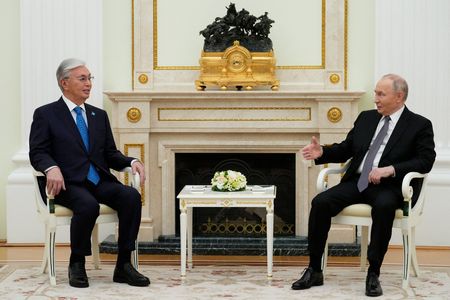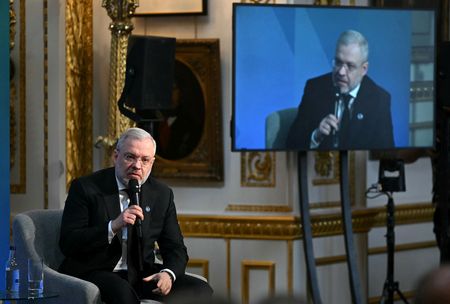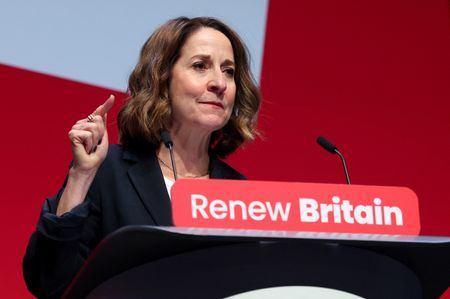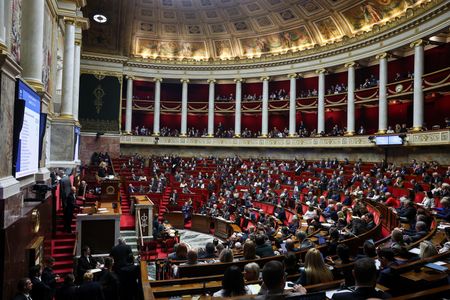MOSCOW (Reuters) -Russia and Kazakhstan have agreed to boost their partnership in the oil sector following talks between their respective presidents in the Kremlin on Wednesday.
Landlocked Kazakhstan is heavily reliant on Russia as a route for its energy exports, with more than 80% of its oil exported through a pipeline operated by the Caspian Pipeline Consortium which runs to one of Russia’s Black Sea oil terminals.
Russian President Vladimir Putin and Kazakh President Kassym-Jomart Tokayev concluded a two-day meeting on Wednesday in Moscow where they were expected to discuss gas projects and the fallout from U.S. sanctions on Russian oil companies.
“We agreed to strengthen our partnership in the areas of oil, oil products, coal, and electricity production, transportation, and supply,” Tokayev said in televised remarks following the talks with Putin.
“We discussed in detail the prospects for gas cooperation, in particular gas supply to Kazakhstan’s regions bordering Russia, as well as transit to third countries,” he said.
The CPC pumps oil from Kazakhstan that is produced by international companies, including U.S. oil majors Chevron and Exxon Mobil, which are also among the pipeline consortium’s shareholders.
Interfax news agency cited Kremlin spokesman Dmitry Peskov saying that the presidents discussed uninterrupted CPC operations, without elaborating.
The CPC operator said in February that drones struck the Kropotkinskaya pumping station in the southern Russian Krasnodar region, impacting the pipeline’s operations.
Russia also seeks to boost its oil exports through Kazakhstan to China. In 2024, the transit totalled 10.2 million tons, or around 204,000 barrels per day.
(Reporting by Vladimir Soldatkin; Writing by Lucy Papachristou; Editing by Sharon Singleton and Jane Merriman)










